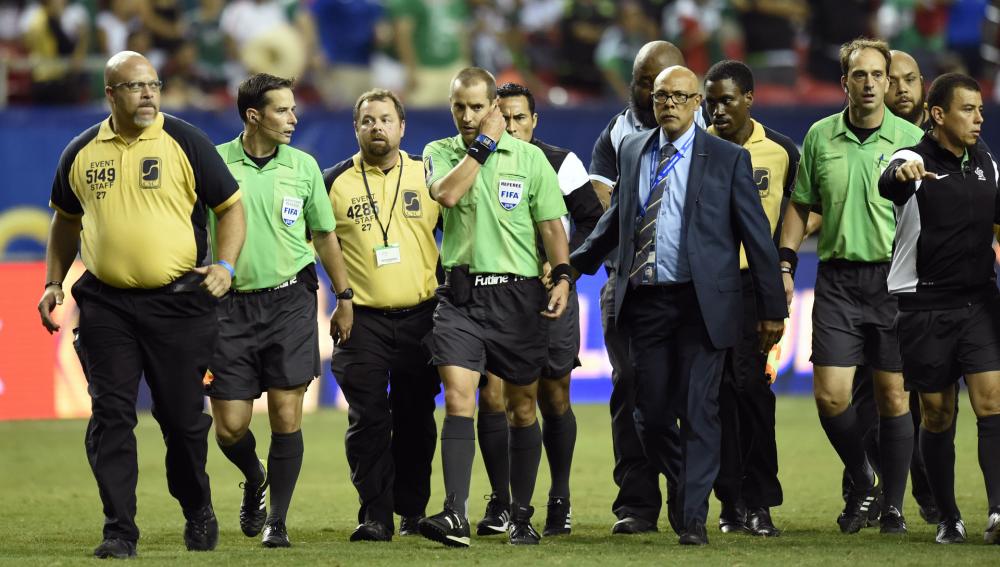CONCACAF: No evidence of match fixing at Gold Cup
The federation plans to restructure its referee department after the Gold Cup was mired by a series of controversial calls.

CONCACAF found "no clear or convincing evidence of match fixing" at the Gold Cup during a review of its referee department, the federation announced Wednesday.
Acting general secretary Ted Howard oversaw the probe, which came after several controversial calls went in Mexico's favor during El Tri's path to the Gold Cup title in July. The review helped CONCACAF identify "areas for administrative improvement" as the federation restructures its referee department and hires a new director of refereeing.
"CONCACAF’s referees are critical to our organization's mission, and we are proud to have dedicated officials working to ensure that the confederation's tournaments are officiated with integrity," Howard said in a news release. "We are committed to making the necessary improvements to our referee department to ensure that it operates effectively. These changes will provide our referees, officials and assessors with the proper structure, training and support to carry out their responsibilities on the field, while acting in the best interests of the game."
The primary catalyst for the probe was Mexico's 2-1 extra-time win over Panama in the Gold Cup semifinals. Reduced to 10 men by a questionable first-half red card to Luis Tejada, Panama was on the verge of victory before Roman Torres' handball gave Mexico a late penalty kick. The seemingly soft call from American referee Mark Geiger prompted a lengthy delay as players protested and fans threw projectiles on the field.
Mexico captain Andres Guardado eventually converted the penalty — though he later said he considered intentionally missing in the name of sportsmanship.
El Tri's semifinal win, which led Panamanian players to accuse CONCACAF of being "corrupt thieves," came after El Tri triumphed over Costa Rica in the quarterfinals on the strength of a similarly controversial last-gasp penalty.
"Each of the decisions during the quarterfinals and semifinals of the Gold Cup 2015 could be attributed to simple mistakes, errors in positioning, and/or lack of concentration," the CONCACAF news release said. "Based on interviews and statements from referees, it is possible that a number of external circumstances, most notably recent labor disputes by the referee group and internal disputes, were an unnecessary distraction for the referees at a critical time.
The best features, fun and footballing quizzes, straight to your inbox every week.
"In interviews, the referees admitted personal errors and apologized for them."
 Join The Club
Join The Club





